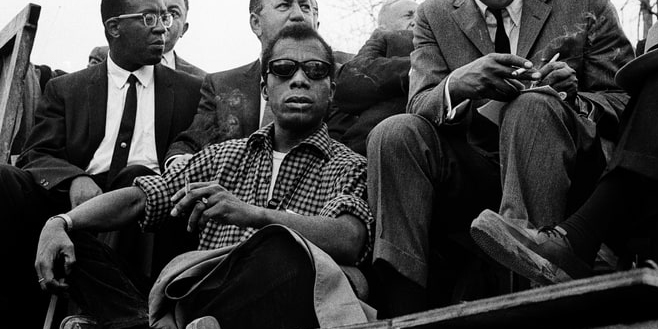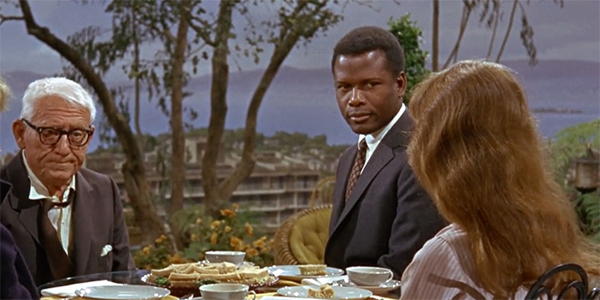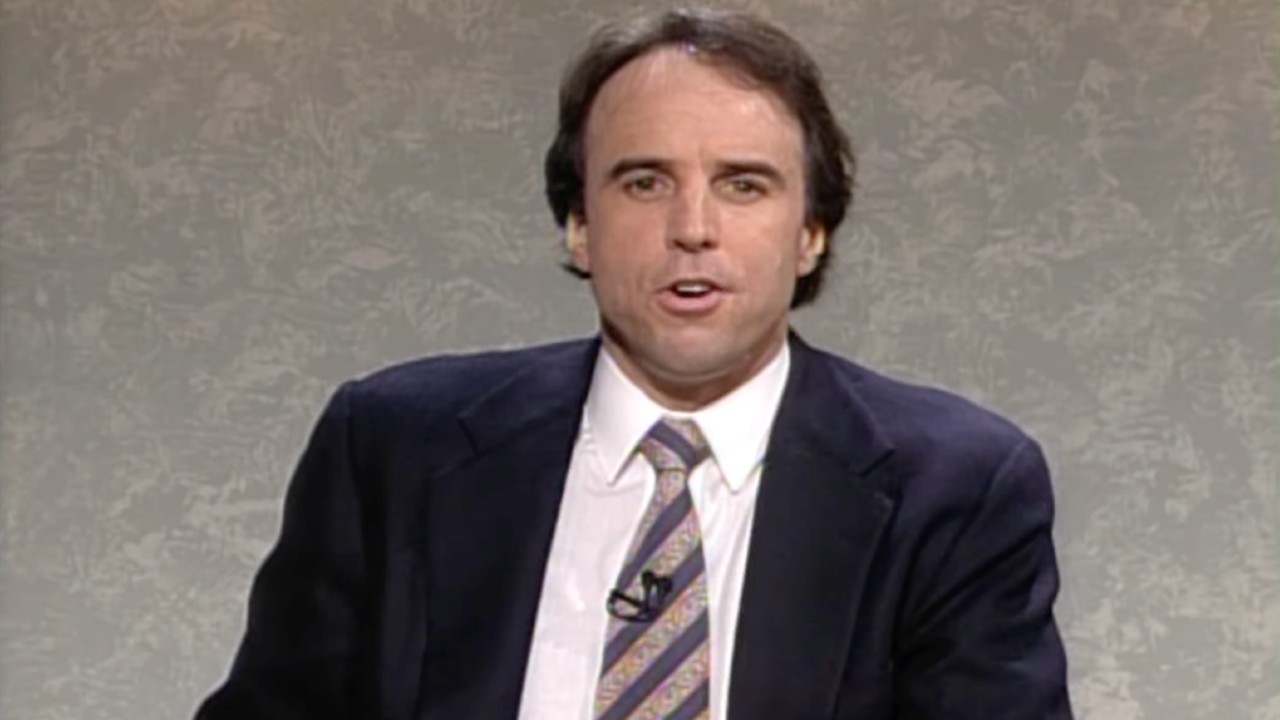One Unexpected Challenge To Putting Together The Oscar-Nominated Doc I Am Not Your Negro


As a professional film critic in addition to being a lauded author, James Baldwin saw cinema as having a very important role in and effect on society -- and it's an outlook that is very much represented in director Raoul Peck's documentary I Am Not Your Negro. The work that the film is based on -- the unfinished manuscript Remember This House -- features many references to classic Hollywood movies and stars, and by extension the doc is loaded with clips and still frames as paired imagery. It's all an incredibly vital part of the storytelling, but also presented the project with odd complications in attaining certain legal rights, leading to bizarre situations where they had to replace footage that was deemed a couple seconds too long.
With I Am Not Your Negro now available on Blu-ray, DVD, and digital download, I had the great pleasure of getting on the phone with producer Herbert Peck last week -- and the primary focus of our conversation was James Baldwin's perceptions on cinema. I specifically asked about the process of researching appropriate footage and any rights issues that the project faced, and Peck revealed that both elements were extremely significant during production, and that it occasionally led to some serious headaches. Said the producer,
One of the things that you should know is that the complete text that is used in the film, these are totally James Baldwin's words. So once you make that choice, you have to find the right imagery to express what the script is expressing. So that's why it was really a trying... it took time to do that. Timing was important on the imagery you put, and every second mattered. Every frame mattered!So you may have a cut, and then you pass it off to your archival lawyer, who may say 'Well, this is fair use, but this is not. I'm going to run it by the folks to see if we can get the rights.' And the lawyer comes back and says, 'Well, you know, you used six seconds, but they will only allow four seconds.' So it's not like you can go, 'Let's take out two seconds.' Because taking out two seconds may mean something completely different!
Likening it to the editorial process in journalism, Herbert Peck explained that it was like an editor telling a writer that they need to cut five words from a sentence. Obviously you can't just cut the first or last five words off and have it still make sense, so that then forced the filmmakers to go back to the source material and find something new that would work.
The finished cut of I Am Not Your Negro includes footage from more than a dozen films and television shows -- from 1927's Uncle Tom's Cabin to 1967's Guess Who's Coming To Dinner to 2003's Elephant -- and many of the titles are present because they are directly named by James Baldwin in Remember This House. Of course, this specificity wound up creating its own issues, as the documentarians had to find the precise material to use and work within legal constraints. Said Peck,
Searching for those clips was a hunt, because you have to watch all of the John Wayne movies you could get your hands on; all of the Doris Day movies you could get your hands on. Because there's specific things that he was talking about. But also, sometimes in the editing or the storytelling aspect, a particular clip may work, but you may not be able to get the rights to that particular number of seconds.
As you can tell by the fact that the movie is now available for public consumption, all of these efforts wound up being successful. In fact, they wound up being beyond successful, as I Am Not Your Negro earned an Academy Award nomination following its release last year. It really is an incredible achievement, bringing the fascinating work of James Baldwin to light, and now that it's available on home video, it's a movie that you should most definitely discover.
Your Daily Blend of Entertainment News

Eric Eisenberg is the Assistant Managing Editor at CinemaBlend. After graduating Boston University and earning a bachelor’s degree in journalism, he took a part-time job as a staff writer for CinemaBlend, and after six months was offered the opportunity to move to Los Angeles and take on a newly created West Coast Editor position. Over a decade later, he's continuing to advance his interests and expertise. In addition to conducting filmmaker interviews and contributing to the news and feature content of the site, Eric also oversees the Movie Reviews section, writes the the weekend box office report (published Sundays), and is the site's resident Stephen King expert. He has two King-related columns.
